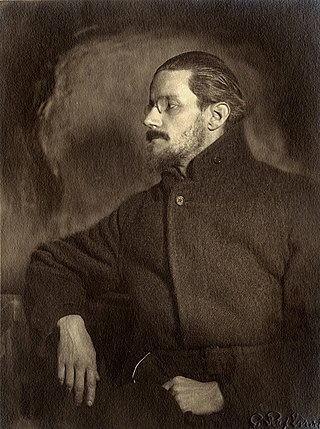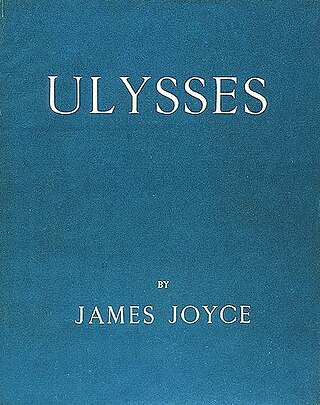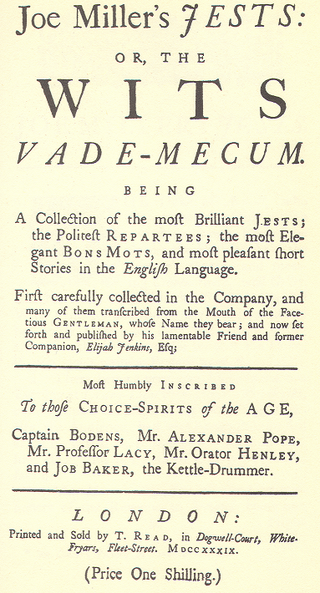Lenehan and Corley appear in at least two works by James Joyce:
Lenehan:
Corley:
Lenehan, as well as being described as a 'leech', is a writer of 'flimsies' (horse racing tip sheets) and apparently does some freelance journalist hack work, notably at the Freeman's Journal newspaper. He considers himself witty.
Corley (who pronounces his name 'Horley') is of an undefined occupation. He is shown in "Two Gallants" to be conning an infatuated servant girl out of money, possibly her master's, and also may be a police informer (Joyce is deliberately obscure on this point). Frequently short of money, he is prepared to beg.
The two are friends, with Lenehan appearing as the remora to Corley's shark in "Two Gallants".

James Augustine Aloysius Joyce was an Irish novelist, poet, and literary critic. He contributed to the modernist avant-garde movement and is regarded as one of the most influential and important writers of the 20th century. Joyce's novel Ulysses (1922) is a landmark in which the episodes of Homer's Odyssey are paralleled in a variety of literary styles, particularly stream of consciousness. Other well-known works are the short-story collection Dubliners (1914), and the novels A Portrait of the Artist as a Young Man (1916) and Finnegans Wake (1939). His other writings include three books of poetry, a play, letters, and occasional journalism.

Ulysses is a modernist novel by Irish writer James Joyce. Parts of it were first serialized in the American journal The Little Review from March 1918 to December 1920, and the entire work was published in Paris by Sylvia Beach on 2 February 1922, Joyce's fortieth birthday. It is considered one of the most important works of modernist literature and has been called "a demonstration and summation of the entire movement." According to Declan Kiberd, "Before Joyce, no writer of fiction had so foregrounded the process of thinking."

Leopold Bloom is the fictional protagonist and hero of James Joyce's 1922 novel Ulysses. His peregrinations and encounters in Dublin on 16 June 1904 mirror, on a more mundane and intimate scale, those of Ulysses/Odysseus in Homer's epic poem: The Odyssey.
The Freeman's Journal, which was published continuously in Dublin from 1763 to 1924, was in the nineteenth century Ireland's leading nationalist newspaper.
Alford Corley is an American actor, singer, and producer. Corley is best known as the first actor to play Steven Carrington in the 1980s soap opera Dynasty and for his 1984 hit single "Square Rooms".

Stephen Dedalus is James Joyce's literary alter ego, appearing as the protagonist and antihero of his first, semi-autobiographic novel of artistic existence, A Portrait of the Artist as a Young Man (1916), and as a major character in his 1922 novel Ulysses. Stephen mirrors many facets of Joyce's own life and personality. Joyce was a talented singer, for example, and in Ulysses Leopold Bloom notes the excellence of Stephen's tenor voice after hearing him sing Johannes Jeep's song "Von der Sirenen Listigkeit".

Dubliners is a collection of fifteen short stories by James Joyce, first published in 1914. It presents a naturalistic depiction of Irish middle class life in and around Dublin in the early years of the 20th century.
"The Dead" is the final short story in the 1914 collection Dubliners by James Joyce. It is by far the longest story in the collection and, at 15,952 words, is almost long enough to be described as a novella. The story deals with themes of love and loss, as well as raising questions about the nature of the Irish identity.

Joseph Miller was an English actor, who first appeared in the cast of Sir Robert Howard's Committee at Drury Lane in 1709 as Teague.

The South Circular Road, designated as the R811 regional road, is a road in Dublin, Ireland. One of the longest in the city, it runs from Islandbridge in the west, through Rialto and Dolphin's Barn to Portobello, near the centre. It runs mainly through residential areas and is used by numerous bus routes. It is the southside equivalent of the North Circular Road.
Malachi Roland St. John "Buck" Mulligan is a fictional character in James Joyce's 1922 novel Ulysses. He appears most prominently in episode 1 (Telemachus), and is the subject of the novel's famous first sentence: "Stately, plump Buck Mulligan came from the stairhead, bearing a bowl of lather on which a mirror and a razor lay crossed."
"Hail fellow well met" is an English idiom used when referring to a person whose behavior is hearty, friendly, and congenial, in the affirmative sense.
Corley is a village in Warwickshire, England.

The Odyssey is an eight-episode European TV miniseries broadcast on RAI in 1968 and based on Homer's Odyssey. An Italian, Yugoslavian, German and French coproduction, it was directed by Franco Rossi, assisted by Piero Schivazappa and Mario Bava; the cast includes Bekim Fehmiu as Odysseus and Irene Papas as Penelope, Samson Burke as the Cyclops, as well as Barbara Bach as Nausicaa, and Gérard Herter. Several critics consider the series to be a masterful representation of the ancient world.

Ulysses is a 1967 drama film based on James Joyce's 1922 novel Ulysses. It concerns the meeting of two Irishmen, Leopold Bloom and Stephen Dedalus, in 1904 Dublin.

The Rose of Castille is an opera in three acts, with music by Michael William Balfe to an English-language libretto by Augustus Glossop Harris and Edmund Falconer, after the libretto by Adolphe d'Ennery and Clairville for Adolphe Adam's Le muletier de Tolède (1854). It was premiered on 29 October 1857, at the Lyceum Theatre, London.
Aeolus is the name of various figures in Greek mythology.
"Two Gallants" is a short story by James Joyce published in his 1914 collection Dubliners. It tells the story of two Irishmen who are frustrated with their lack of achievement in life and rely on the exploitation of others to live. Joyce considered the story to be one of the most important in Dubliners.

South Great George's Street is a street in south-central Dublin, Ireland.